Ramadan, رمضان, rɑmɑˈdˤɑːn,رمضان رمضان is the ninth month of the
Islamic calendar, Muslims worldwide observe this as a month of fasting.,
This annual observance is regarded as one of the Five Pillars of
Islam., The month lasts 29–30 days based on the visual sightings of the
crescent moon, according to numerous biographical accounts compiled in
hadiths.
The word Ramadan comes from the Arabic root ramida or
ar-ramad, which means scorching heat or dryness. Fasting is fardh,for
adult Muslims, except those who are ill, traveling, pregnant, diabetic
or going through menstrual bleeding.
While fasting from dawn until sunset, Muslims refrain from consuming food, drinking liquids, smoking, and engaging in sexual relations; in some interpretations they also refrain from swearing. Food and drink is served daily, before sunrise and after sunset.
While fasting from dawn until sunset, Muslims refrain from consuming food, drinking liquids, smoking, and engaging in sexual relations; in some interpretations they also refrain from swearing. Food and drink is served daily, before sunrise and after sunset.
According to Islam, the
thawab (rewards) of fasting are many, but in this month they are
believed to be multiplied. Fasting for Muslims during Ramadan typically
includes the increased offering of salat (prayers) and recitation of the
Quran.
Ramadan Kareem is a phrase which means Happy Ramadan. This is said with the aim of wishing one to enjoy the holy month of Ramadan.
Ramadan, as a name for the month, is of Muslim origin. However, prior to Islam's exclusion of intercalary days from its calendar, the name of this month was called Natiq and [due to the intercalary days added] always occurred in the warm season.
It is believed that the first revelation to Muhammad was sent down during the month of Ramadan. Furthermore, God proclaimed to Muhammad that fasting for His Sake was not a new innovation in monotheism, but rather an obligation practiced by those truly devoted to The Oneness of God.
Ramadan is a time of spiritual reflection, improvement and increased devotion and worship. Muslims are expected to put more effort into following the teachings of Islam. The fast (sawm) begins at dawn and ends at sunset. In addition to abstaining from eating and drinking, Muslims also increase restraint, such as abstaining from sexual relations and generally sinful speech and behavior.
Ramadan Kareem is a phrase which means Happy Ramadan. This is said with the aim of wishing one to enjoy the holy month of Ramadan.
Ramadan, as a name for the month, is of Muslim origin. However, prior to Islam's exclusion of intercalary days from its calendar, the name of this month was called Natiq and [due to the intercalary days added] always occurred in the warm season.
It is believed that the first revelation to Muhammad was sent down during the month of Ramadan. Furthermore, God proclaimed to Muhammad that fasting for His Sake was not a new innovation in monotheism, but rather an obligation practiced by those truly devoted to The Oneness of God.
Ramadan Fasting
Ramadan is a time of spiritual reflection, improvement and increased devotion and worship. Muslims are expected to put more effort into following the teachings of Islam. The fast (sawm) begins at dawn and ends at sunset. In addition to abstaining from eating and drinking, Muslims also increase restraint, such as abstaining from sexual relations and generally sinful speech and behavior.
The act of fasting
is said to redirect the heart away from worldly activities, its purpose
being to cleanse the soul by freeing it from harmful impurities. Ramadan
also teaches Muslims how to better practice self-discipline,
self-control, sacrifice, and empathy for those who are less fortunate;
thus encouraging actions of generosity and compulsory charity (zakat).
It becomes compulsory for Muslims to start fasting when they reach puberty, so long as they are healthy, sane and have no disabilities or illnesses. Many children endeavor to complete as many fasts as possible as practice for later life.
Exemptions to fasting are travel, menstruation, severe illness, pregnancy, and breast-feeding. However, many Muslims with medical conditions insist on fasting to satisfy their spiritual needs, and healthcare professionals must work with their patients to reach common ground. Professionals should closely monitor individuals who decide to persist with fasting. Those who were unable to fast still must make up the days missed later.
Each day before dawn, Muslims observe a pre-fast meal called suhoor. After stopping a short time before dawn, Muslims begin the first prayer of the day, the Fajr prayer. At sunset, families hasten for the fast-breaking meal known as iftar.
Considering the high diversity of the global Muslim population, it is impossible to describe typical suhoor or iftar meals. Suhoor can be leftovers from the previous night's dinner (iftar), typical breakfast foods, or ethnic foods.
In the evening, dates are usually the first food to break the fast; according to tradition, Muhammad broke fast with three dates. Following that, Muslims generally adjourn for the Maghrib prayer, the fourth of the five daily prayers, after which the main meal is served.
Social gatherings, many times buffet style, at iftar are frequent, and traditional dishes are often highlighted, including traditional desserts, especially those made only during Ramadan. Water is usually the beverage of choice, but juice and milk are also consumed. Soft drinks and caffeinated beverages are consumed to a lesser extent.
In the Middle East, the iftar meal consists of water, juices, dates, salads and appetizers, one or more entrees, and dessert. Typical entrees are lamb stewed with wheat berries, lamb kebabs with grilled vegetables, or roast chicken served with chickpea-studded rice pilaf. A rich dessert such as baklava or kunafeh (a buttery, syrup-sweetened kadaifi noodle pastry filled with cheese) concludes the meal.
Over time, iftar has grown into banquet festivals. This is a time of fellowship with families, friends and surrounding communities, but may also occupy larger spaces at masjid or banquet halls for 100 or more diners.
It becomes compulsory for Muslims to start fasting when they reach puberty, so long as they are healthy, sane and have no disabilities or illnesses. Many children endeavor to complete as many fasts as possible as practice for later life.
Exemptions to fasting are travel, menstruation, severe illness, pregnancy, and breast-feeding. However, many Muslims with medical conditions insist on fasting to satisfy their spiritual needs, and healthcare professionals must work with their patients to reach common ground. Professionals should closely monitor individuals who decide to persist with fasting. Those who were unable to fast still must make up the days missed later.
Suhoor and Iftar
Each day before dawn, Muslims observe a pre-fast meal called suhoor. After stopping a short time before dawn, Muslims begin the first prayer of the day, the Fajr prayer. At sunset, families hasten for the fast-breaking meal known as iftar.
Considering the high diversity of the global Muslim population, it is impossible to describe typical suhoor or iftar meals. Suhoor can be leftovers from the previous night's dinner (iftar), typical breakfast foods, or ethnic foods.
In the evening, dates are usually the first food to break the fast; according to tradition, Muhammad broke fast with three dates. Following that, Muslims generally adjourn for the Maghrib prayer, the fourth of the five daily prayers, after which the main meal is served.
Social gatherings, many times buffet style, at iftar are frequent, and traditional dishes are often highlighted, including traditional desserts, especially those made only during Ramadan. Water is usually the beverage of choice, but juice and milk are also consumed. Soft drinks and caffeinated beverages are consumed to a lesser extent.
In the Middle East, the iftar meal consists of water, juices, dates, salads and appetizers, one or more entrees, and dessert. Typical entrees are lamb stewed with wheat berries, lamb kebabs with grilled vegetables, or roast chicken served with chickpea-studded rice pilaf. A rich dessert such as baklava or kunafeh (a buttery, syrup-sweetened kadaifi noodle pastry filled with cheese) concludes the meal.
Over time, iftar has grown into banquet festivals. This is a time of fellowship with families, friends and surrounding communities, but may also occupy larger spaces at masjid or banquet halls for 100 or more diners.
Ramadan Beginning
Hilāl, the crescent, is typically a day (or more) after the astronomical new moon. Since the new moon marks the beginning of the new month, Muslims can usually safely estimate the beginning of Ramadan. However, to many Muslims, this is not in accordance with authenticated Hadiths stating that visual confirmation per region is recommended. The consistent variations of a day have existed since the time of Muhammad.Ramadan In Huran
Chapter 2, Revelation 185 of the Quran states:The month of Ramadan is that in which was revealed the Quran; a guidance for mankind, and clear proofs of the guidance, and the criterion (of right and wrong). And whosoever of you is present, let him fast the month, and whosoever of you is sick or on a journey, a number of other days. Allah desires for you ease; He desires not hardship for you; and that you should complete the period, and that you should magnify Allah for having guided you, and that perhaps you may be thankful.[Quran 2:185]Thus, according to the Quran, Muhammad first received revelations in the lunar month of Ramadan. Therefore, the month of Ramadan is considered to be the most sacred month of the Islamic calendar, the recording of which began with the Hijra.
Ramadan Days Charity
Charity is very important in Islam, and even more so during Ramadan.
Zakat, often translated as "the poor-rate", is obligatory as one of the
pillars of Islam; a fixed percentage is required to be given to the poor
of the person's savings. Sadaqa is voluntary charity in given above and
beyond what is required from the obligation of Zakat. In Islam all good
deeds are more handsomely rewarded in Ramadan than in any other month
of the year. Consequently, many will choose this time to give a larger
portion, if not all, of the Zakat for which they are obligated to give.
In addition, many will also use this time to give a larger portion of
sadaqa in order to maximize the reward that will await them on the Day of Judgment.
In many Muslim countries, it is a common sight to see people giving
more food to the poor and the homeless, and even to see large public
areas for the poor to come and break their fast. It is said that if a
person helps a fasting person to break their fast, then they receive a
reward for that fast, without diminishing the reward that the fasting
person got for their fast.
Ramadan Laylat al-Qadr
Sometimes referred to as "the night of power" or 'the night of decree",
Laylat al-Qadr is considered the most holy night of the year.
This is the night in which Muslims believe the first revelation of the
Quran was sent down to Muhammad stating that this night was "better than
one thousand months [of proper worship], as stated in Chapter 97:3 of
the Qu'ran.
Also, generally, Laylat al-Qadr is believed to have occurred on an
odd-numbered night during the last 10 days of Ramadan, i.e., the night
of the 21st, 23rd, 25th, 27th or 29th
| . | |||||||||||||||||||||||||||||||||||||||||||||||||
End of Ramadan Eid ul-Fitr
The Muslim holiday of Eid ul-Fitr ( عيد الفطر, "festivity of breaking the fast"), sometimes spelled in English as Eid al-Fitr, marks the end of Ramadan and the beginning of the next lunar month called Shawwal in Arabic. This first day of the following month is declared after another crescent new moon has been sighted or the completion of 30 days of fasting if no visual sighting is possible due to weather conditions.
This first day of Shawwal is called Eid ul-Fitr. Eid Ul-Fitr may also be a reference towards the festive nature of having endured the month of fasting successfully and returning to the more natural disposition (fitra) of being able to eat, drink and resume intimacy with spouses during the day.
Pre-Islamic fasting
During the Jahilliyah (i.e. pre-Islamic period) the tribe of Quraish and the Jews used to fast on the day of Ashura. It marks two historical events: the day Nuh (Noah) left the Ark, and the day that Musa (Moses) was saved from the Egyptians by God. Ashura may or may not be referring to the Jewish practice of fasting on Yom Kippur.Abu Zanad, an Arabic writer from Iraq who lived around 747 A.D. (after the founding of Islam), wrote that at least one Mandaean community located in northern Iraq observed Ramadan.
Ramadan Culture
Different cultural additions are associated as part of the original celebrations arising from the time of Muhammad, as many of the forms of celebration in various cultures and countries have added. For example, no symbols of Ramadan were evident in any scholarly literature of Muhammad's lifetime, yet in some places Ramadan is met with various decorations.
For example, in some Muslim countries today lights are strung up in public squares, and across city streets, to add to the festivities of the month. Lanterns have become symbolic decorations welcoming the month of Ramadan. In a growing number of countries, they are hung on city streets.
The tradition of lanterns as a decoration becoming associated with Ramadan is believed to have originated during the Fatimid Caliphate primarily centered in Egypt, where the Caliph Al-Muizz Lideenillah was greeted by people holding lanterns to celebrate his ruling. From that time lanterns were used to light mosques and houses throughout the capital city of Cairo.
Shopping malls, places of business, and people's homes can be seen with stars and crescents, as well as, various lighting effects, as well. Some Muslim parents, residing in Western countries mimick modern Christmas celebration traditions, as a means of trying to make Ramadan a more enjoyable time for their children who are too young to fast and understand the spiritual significance of the holy month.
Some Muslims may use a Ramadan calendar to help their children understand Ramadan. There are 29 or 30 flaps, behind which there may be a small piece of chocolate, a sweet or a toy.
Ramadan Word origin
Ramadan, as a name for the month, is of Muslim origin. However, prior to Islam's exclusion of intercalary days from its calendar, the name of this month was called Natiq and due to the intercalary days added always occurred in the warm season.
It is believed that the first revelation to Muhammad was sent down during the month of Ramadan. Furthermore, God proclaimed to Muhammad that fasting for His Sake was not a new innovation in monotheism, but rather an obligation practiced by those truly devoted to The Oneness of God.
Ramdan Kareem Wishes SMS
May this Ramadan enlighten you and
clear your understanding and judgment between the right and wrong,
between the truths and false.
Wishing you a Ramadan Mubarak!
The blessed month of the year has come.
It’s the season of Ramadan. Fasting, praying,
repenting from sins.
Hoping that Allah shower you and your beloved
with loads of blessings.
Happy Mubarak!
Let’s celebrate as the month of Ramadan begins here.
Filling our life happiness and mirth,
as Allah bless as once again with prosperity and cheer.
Happy Ramadan!
As you recite the prayers in Quran,
here I am wishing you a Happy Ramadan.
May it be sincere and fruitful,
for Allah shower you with loads of wealth and happiness in life.
May the spirit of Ramadan bless you with prosperity,
wealth and happiness in life.
May Allah forgive you for all of your fault and wrongdoings.
Happy Ramadan.
Let this divine season wash away your burden,
lighten the darkness and ease the pain you may have at this moment.
Allah, the almighty,
will surely bless you with all the best things in life.
Just repent, worship and pray.
Happy Ramadan!
May you reap and enjoy the promised blessings of Ramadan.
Ramadan Kareem to you and your family!
This Ramadan, just letting you know that I am praying with you by soul.
Let’s celebrate this auspicious occasion with so much love and delight.
Missing you so much. From across the mile,
sending you my warmest Ramadan kareem wishes!
I’m wishing you to be showered with loads of blessings
come from our almighty creator Allah.
Have a happy and peaceful Ramadan!



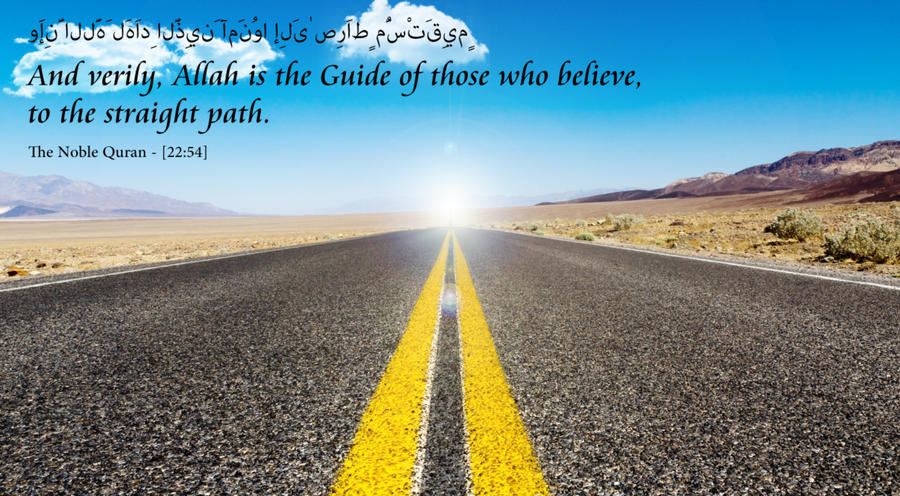



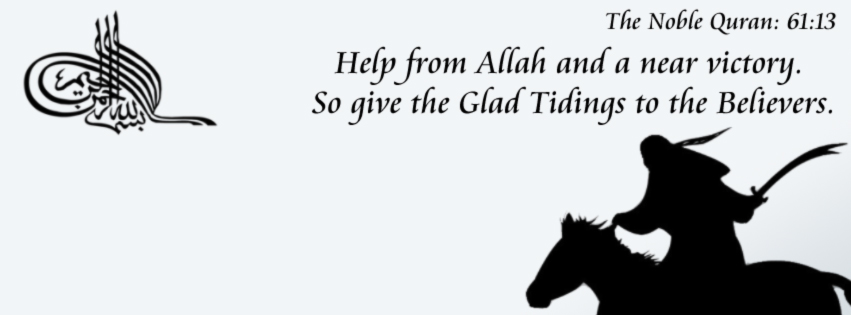





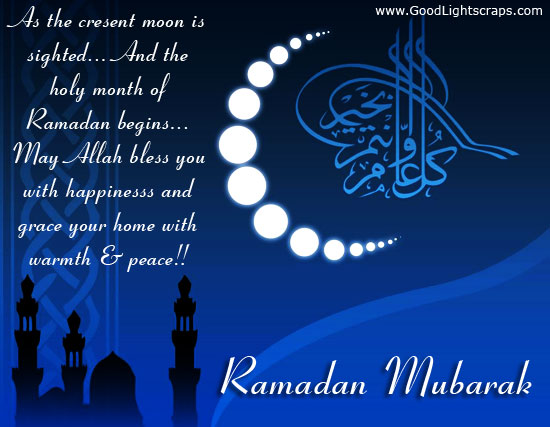


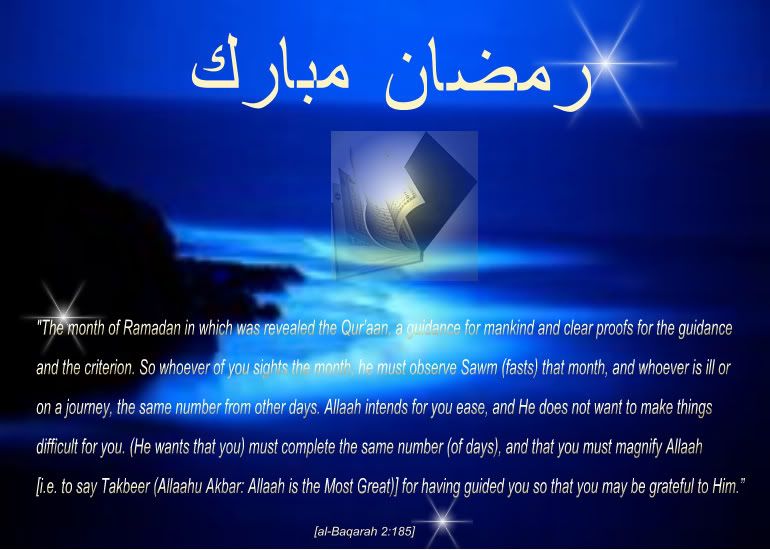
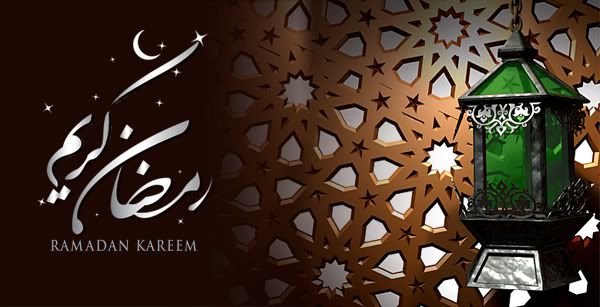
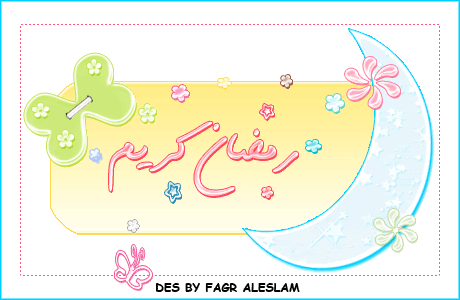
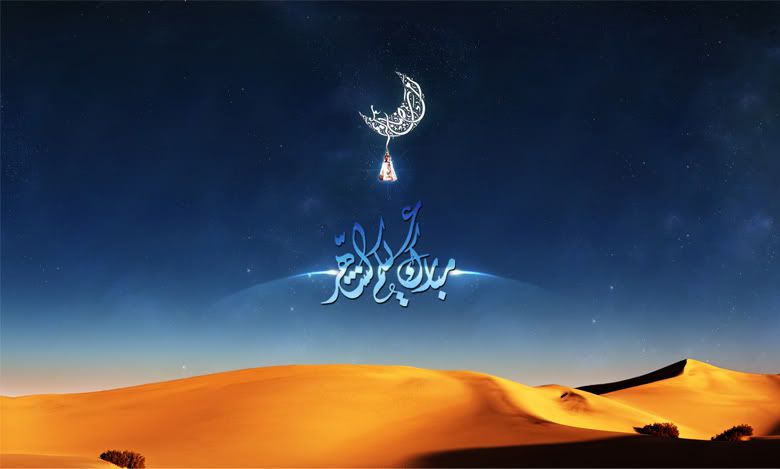
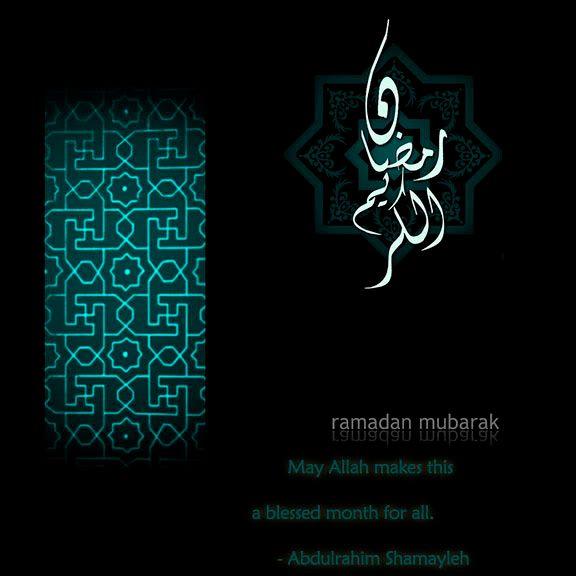


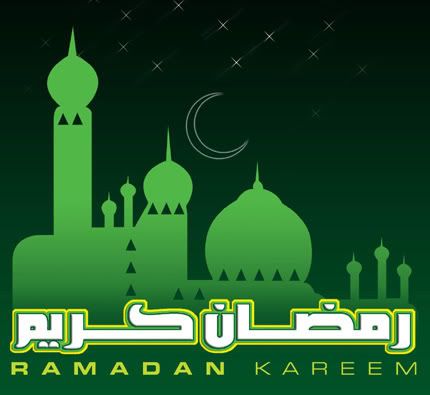

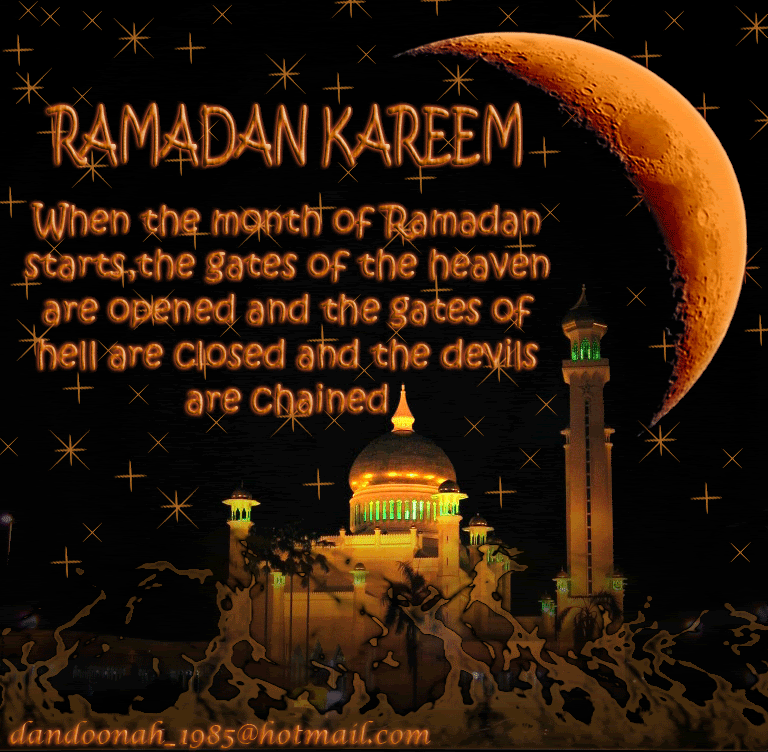





No comments:
Post a Comment